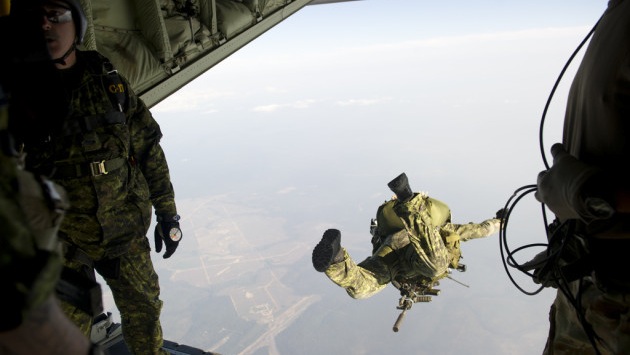In the last four articles of this series, I’ve talked about a number of factors that make up Canadian SOF. But what have Canada’s Special Operations units been up to over the last two decades? We tend not to talk about it very much, but there is open-source information out there that I’m proud to point out in the final article in this series.
One of the best articles on the Canadian Special Forces’ contribution to the Global War On Terror (GWOT), is Chaos in Kandahar, The Battle For Building 4. It tells of the Green Team and their Afghan National Special Police Unit’s role in the fight against Taliban insurgents who conducted a massive coordinated attack in the city on the afternoon of 7 May 2011. The bravery shown this day by the men of Special Operations Task Force-58 (SOTF-59) garnered a series of awards, including two stars of Military Valour and a Medal of Military Valour.
Our most well-known roll in the GWOT is our time spent in Afghanistan. Initiated by JTF2’s roll with the NATO task force during the invasion of Afghanistan shortly after the World Trade Center terrorist attacks in September 2001. We maintained a presence in Afghanistan alongside our NATO allies up until the withdrawal of all Canadian troops in March 2014, ending Canada’s 12-year military presence in the country. We could not have foreseen how quickly we would return to the Middle East.
Over the last several years, the Canadian Special Operations Forces Command (CANSOFCOM), which includes Joint Task Force 2, CSOR, CJIRU, and 427 Tactical Helicopter Squadron, has operated in several countries in addition to Afghanistan, including Mali, Jamaica, Niger, Libya, Kenya, Jordan, and most recently, Iraq.
Canada has had Special Forces operators working with Jamaica’s security forces, as shown in this video from the Ottawa Citizen. Roles like this have been critical in building relationships with other military organizations and coalition countries.
In Mali and Niger, CSOR teams have trained soldiers who are fighting al-Qaida-affiliated terrorists. Of note, in this particular mission during the March 22 coup in Mali, the paratroopers trained by CSOR were one of the only groups who remained loyal to the elected government and President Toure, highlighting the impact that our small teams of Special Forces soldiers can have on encouraging democracy in third-world countries.
It hasn’t been all work and no play, however. During the last few years, CSOR has taken part in several international SOF competitions that pit teams of Special Forces units from all over the world against each other in tactical competitions. Both Fuerzas Comando and King Abdulla’s Special Operations Training Center (KSOTC) bring together some of the best warriors each country has to offer. These competitions include members of the Green Berets, Chinese Special Operations Forces, Jordan’s Gendarmerie, Palestine’s National Security Forces, and the Netherlands’ Maritime Special Operations Force, among others.
We now find ourselves back in the Middle East, where nearly 70 Canadian Special Forces soldiers are advising the Kurds in their fight against Islamic State militants. While mentoring Kurdish leaders with their plans of attack, Canadian SF operators were forced to return fire on the terrorist state in self-defense. This goes to demonstrate that even in a low-threat environment, Canadian soldiers are always willing to put their lives on the line in defense of democracy and Canadian values — a reflection of our organizational ethos.
Canadian Special Forces are some of the world’s best trained and disciplined soldiers, and they sacrifice daily for the rights and freedoms of every Canadian, regardless of faith, gender, or ethnicity. Although most missions will remain secret, what has been made public proves them to be a robust, honorable force that you want on your side. They truly do stand on guard for thee.
You now understand that Special Forces isn’t about ninja kicks to the head or “hiding in the shadows,” but rather it’s about totally and completely mastering the basics of soldiering. You’ve learned that selection is used to find the right kind of follower, one who will thrive in the SOF community, and one who can, in turn, be groomed for leadership over those same type of warriors. You’ve been given insight into the culture that each SOF unit must develop and maintain in order to remain a major player in the SOF community and fight alongside our allies, as well as the impact it can have on mission failure or mission success.
In the fourth article of this series, you were told how SOF soldiers operate, or rather how they plan to operate, and how important this specific planning process is in allowing the Special Forces soldier to perform at the highest possible level. Lastly, in this article, you’ve been given a small glimpse into the type of contributions that the Canadian Special Forces have made around the world over the past two decades.
Already have an account? Sign In
Two ways to continue to read this article.
Subscribe
$1.99
every 4 weeks
- Unlimited access to all articles
- Support independent journalism
- Ad-free reading experience
Subscribe Now
Recurring Monthly. Cancel Anytime.










COMMENTS